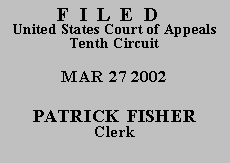

| UNITED STATES OF AMERICA, |
|
This appeal is from an order of the district court sentencing defendant to 18 years of incarceration to be followed by five years of supervised release, after a plea agreement which required the government to file an information alleging second degree murder in Indian Country and use and discharge of a firearm during the commission of a crime of violence. On December 12, 2000, defendant Leaf was originally charged in a two count indictment with first degree murder in Indian Country and the use and discharge of a firearm during the commission of a crime of violence. After plea negotiations were entered into, defendant eventually entered into a written plea agreement under Fed. R. Crim. P. § 11(e)(1)(C), in which he waived an indictment and agreed to a total sentence of 18 years of incarceration. As required under the plea agreement, the government filed an information that alleged second degree murder and use and discharge of a firearm during the commission of a crime of violence. Under the terms of the plea agreement, defendant entered a plea of guilty to the charges in the information. The plea agreement mandated a sentence of 96 months on the second degree murder charge and 120 months on the firearms charge. The firearms charge is statutorily required to run consecutive to the sentence on the murder count.
We have reviewed the entire record on appeal before this court, including the plea agreement and the presentence report. We find no basis on which to determine that an error was made in the district court. Defendant's attorney has filed a brief pursuant to Anders v. State of California, 386 U.S. 738, 87 S.Ct. 1396 (1967). Defendant's attorney moves this court for leave to withdraw. That motion is granted. We affirm the order of the district court sentencing defendant pursuant to the terms of the plea agreement. AFFIRMED.
ENTERED FOR THE COURT,
Deanell Reece Tacha
Circuit Judge
*.This order and judgment is not binding precedent, except under the doctrines of law of the case, res judicata, and collateral estoppel. This court generally disfavors the citation of orders and judgments; nevertheless, an order and judgment may be cited under the terms and conditions of 10th Cir. R. 36.3.